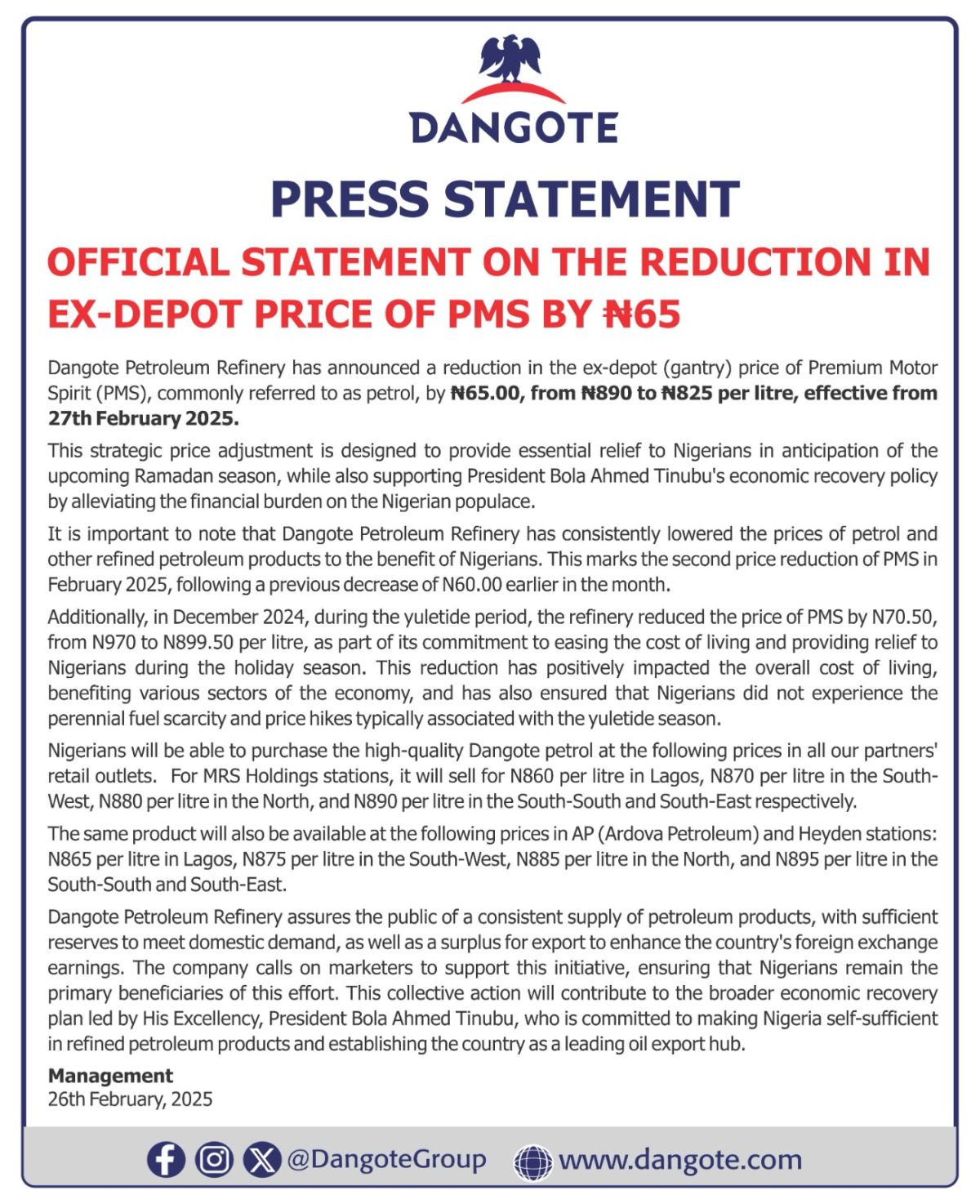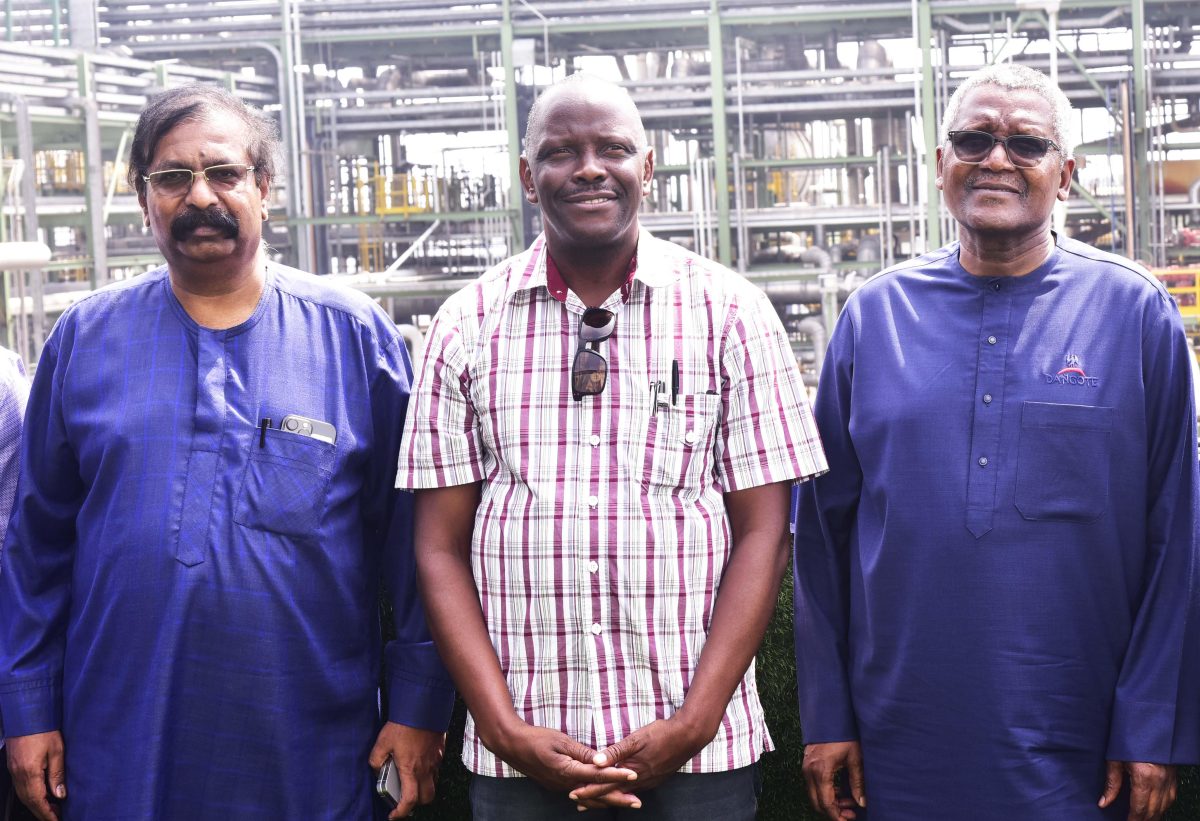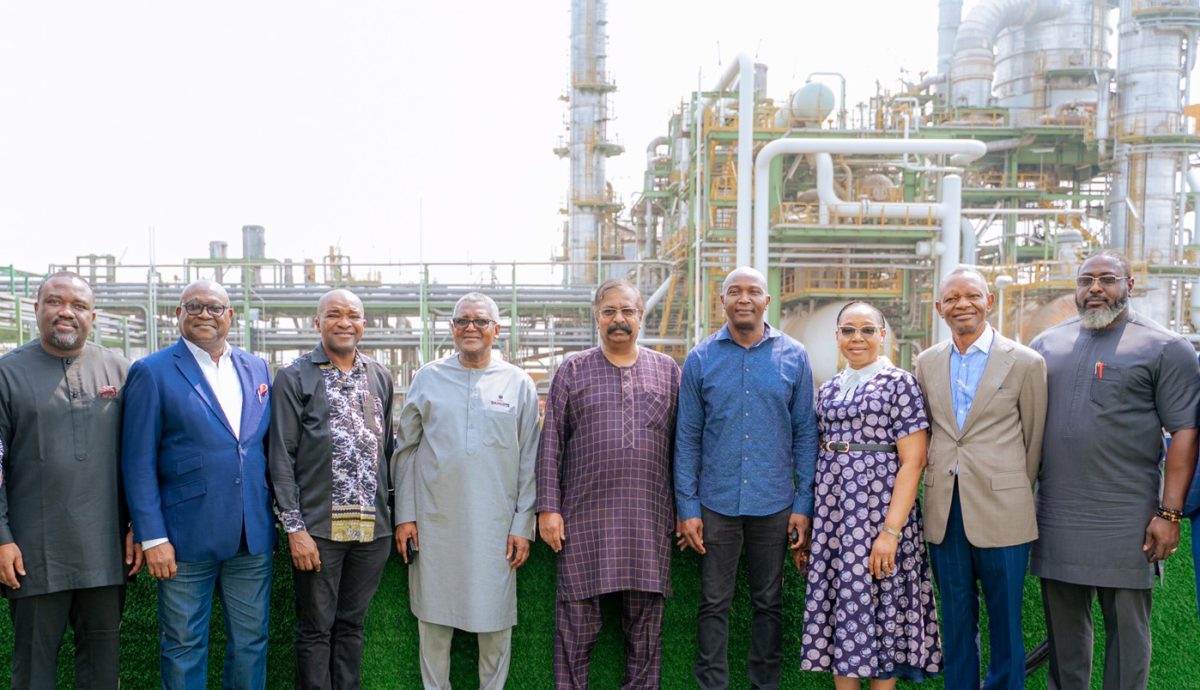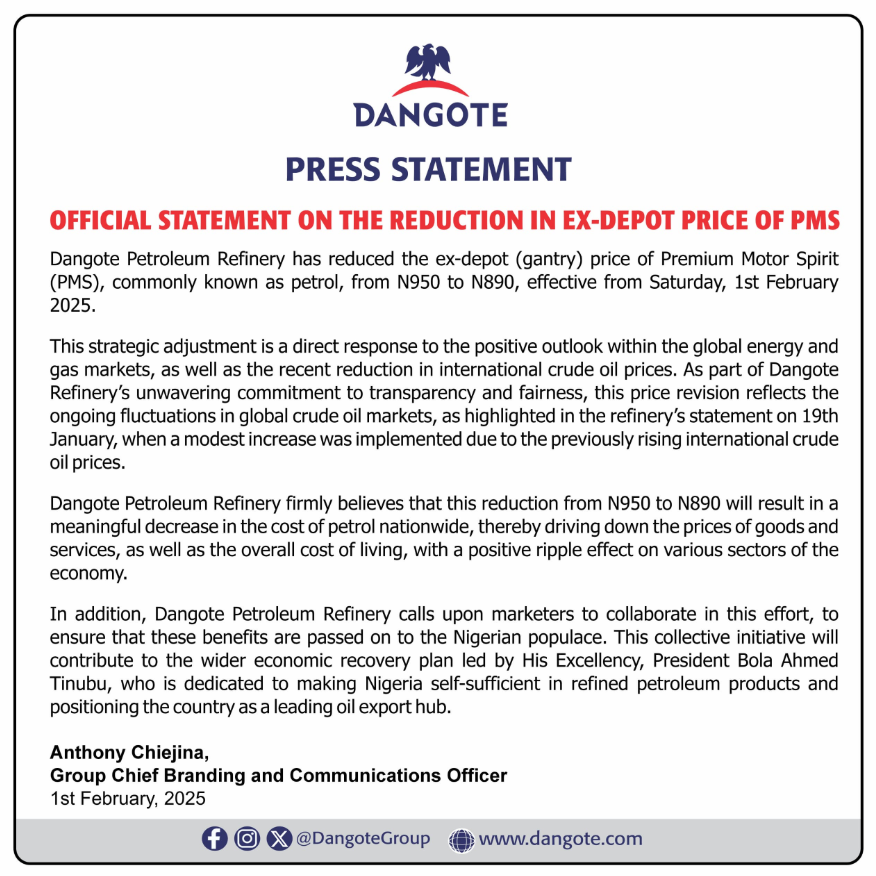Dangote Petroleum Refinery has announced a reduction in the ex-depot (gantry) price of Premium Motor Spirit (PMS), commonly referred to as petrol, by N65.00, from N890 to N825 per litre, effective from 27th February 2025.
This strategic price adjustment is designed to provide essential relief to Nigerians in anticipation of the upcoming Ramadan season, while also supporting President Bola Ahmed Tinubu’s economic recovery policy by alleviating the financial burden on the Nigerian populace.
It is important to note that Dangote Petroleum Refinery has consistently lowered the prices of petrol and other refined petroleum products to the benefit of Nigerians. This marks the second price reduction of PMS in February 2025, following a previous decrease of N60.00 earlier in the month.
Additionally, in December 2024, during the yuletide period, the refinery reduced the price of PMS by N70.50, from N970 to N899.50 per litre, as part of its commitment to easing the cost of living and providing relief to Nigerians during the holiday season. This reduction has positively impacted the overall cost of living, benefiting various sectors of the economy, and has also ensured that Nigerians did not experience the perennial fuel scarcity and price hikes typically associated with the yuletide season.
Nigerians will be able to purchase the high-quality Dangote petrol at the following prices in all our partners’ retail outlets. For MRS Holdings stations, it will sell for N860 per litre in Lagos, N870 per litre in the South-West, N880 per litre in the North, and N890 per litre in the South-South and South-East respectively.
The same product will also be available at the following prices in AP (Ardova Petroleum) and Heyden stations: N865 per litre in Lagos, N875 per litre in the South-West, N885 per litre in the North, and N895 per litre in the South-South and South-East.
Dangote Petroleum Refinery assures the public of a consistent supply of petroleum products, with sufficient reserves to meet domestic demand, as well as a surplus for export to enhance the country’s foreign exchange earnings. The company calls on marketers to support this initiative, ensuring that Nigerians remain the primary beneficiaries of this effort. This collective action will contribute to the broader economic recovery plan led by His Excellency, President Bola Ahmed Tinubu, who is committed to making Nigeria self-sufficient in refined petroleum products and establishing the country as a leading oil export hub.
Management
26th February, 2025
